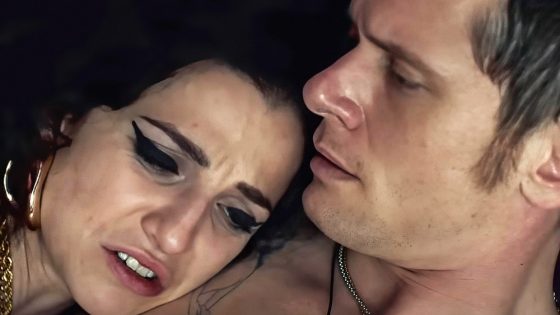Sam Taylor-Johnson has pushed back against criticism of how “Back to Black,” her Amy Winehouse biopic starring Marisa Abela as the late iconic singer, depicts some of its main characters.
The Focus Features film finally lands in the U.S. today, more than a month after it released in the U.K. with StudioCanal.
For all the noise and controversy leading up to its release on home soil, “Back to Black” was met with mostly positive reviews, with Abela’s lead performance — in her big screen debut — singled out for praise. But that’s not to say there hasn’t been some disapproval, mostly over how it depicts Winehouse’s father, Mitch Winehouse, and former husband, Blake Fielder-Civil.
Mitch has been the subject of scrutiny since Winehouse died of alcohol poisoning in 2011, portrayed in the British media as a fame-seeker who exploited his daughter’s success to aid his own singing career (something echoed in Asif Kapadia’s Oscar-winning 2015 documentary “Amy”). Meanwhile, Fielder-Civil has openly admitted to introducing Winehouse to heroin and crack.
In “Back to Black,” however, both Mitch Winehouse and Fielder-Civil are presented favorably, with the film glossing over Fielder-Civil giving Amy drugs for the first time. But for Taylor-Johnson, there’s a very good reason for this, with the decision being made early on with the writer Matt Greenhalgh.
“We decided that it had to be very different and not just mirror what we’ve already seen,” she tells Variety. And that key difference was to be “in her perspective” and tell the story through Winehouse’s music and words.
“Therefore, she’s not going to look at Blake in the way that we might look at him and she’s not going to look at Mitch the way we might look at him. She’s going to look at them with the love that we know is in the album ‘Back to Black,” she explains.
With the movie being “sort of framed around ‘Back to Black,’” Taylor-Johnson says that it explores the “overwhelming love and the depths of pain” around her relationship with Fielder-Civil. “Therefore, all the decision-making had to be through her lens. It had to be through the lens of love for Blake and her family.”
Another discussion point has been the decision for Abela to sing in the film rather than lip-sync to Winehouse’s own performances. But Abela says that wasn’t the initial plan.
“SoI had a lot of freedom and could explore her voice with a sort of curiosity and gentleness rather than it being, ‘I have to get this right,’” she says. Eventually, after a great deal of practice and training — including two hours of singing a day for four months — Abela had the belief that she should perform herself.
“And then once I did start singing Amy’s music, what became really clear to me was that I could continue to tell her emotional story and live her psychological life and her truth through these moments, and you would lose that if we’d cut to a studio recording,” she says.
Thankfully, Taylor-Johnson was still “thrashing out” the music of the film, having not expected to find some who could both embody Winehouse “from the inside” and also come close to singing in her voice. In the end, Abela almost sang throughout — the sole moment the audience hears Winehouse’s original voice is when one of her songs is played on a jukebox in a pub.
“It sort of a felt like a nice way to honor that moment,” Taylor-Johnson says.
Source Agencies


